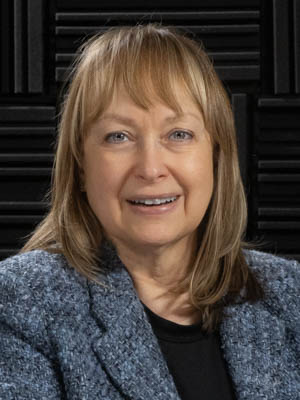Broken Windows
by Gila Hayes
I was interested to hear an echo of the old broken windows theory in Greg Ellifritz’s discussion about staying safe in unfamiliar environments. I couldn’t help but think about doing trash pick up and other community improvement projects now that spring is here after reading his comments about the prevalence of crime in run down neighborhoods.
In the 1980s criminologists suggested that damaged, abandoned buildings encourage crime because it is clear no one cares enough to prevent, stop or punish crime in that part of town. (Kelling and Wilson, 1982) While the fallout from applying what came to be called the Broken Windows theory was much broader than mere urban revitalization, there remains a lot of truth to the underlying belief that hard work to maintain a tidy, well-repaired living and working space communicates residents’ commitment to order and lawful behavior.
Since we prefer our self-defense preparations to be proactive rather than reactive, it is something to think about even if it is as simple as periodically collecting trash left behind in the company parking lot. After all, we carry guns to prevent attack when we are going in and coming out of work. Let’s also do our part to keep the areas we regularly move through safe and wholesome.
Choose Us For What We Do, Not Because We’re Cheap
Over the past several months, a little rash of non-emergency calls have come in on the emergency phone number. That’s not so good because we need to reserve that number for the use of members calling us after use of force in self defense. One caller, distressed by the New York court’s verdict against Wayne LaPierre of the NRA, called the emergency number to ask our Network President’s opinion when the office phone was busy with new memberships and renewals. Another member called just slightly after closing time and still another just slightly before opening at 7 a.m.
The early morning and early evenings calls were ironic because only shortly before or quite soon thereafter, we would have had many business hours during which we could have moved the call over to the general business line and happily discussed their concerns at length. Much as I regret interrupting someone who is energetically launching into a long question or a description of their particular situation and contingent concerns, reserving the emergency line for use only after self defense is a precaution we need members to respect.
One competitor’s terms and conditions includes a paragraph stating they charge $75 for “false reports, ‘test’ calls, and other abuses of the 24-hour hotline number.” The Network has never even considered imposing any steps of that nature, nor can I imagine ever doing such a thing. We choose to trust our members to exercise good judgment and by their actions demonstrate their concern and respect for the needs of their fellow Network members who do call for help after self defense.
The early morning and early evening callers were new members who had not had self-defense incidents, but wanted proof that part of our assistance worked. My after-work caller also wanted to explore how the emergency call line works. I explained that two founding officers of Armed Citizens’ Legal Defense Network, myself and Network president Marty Hayes, shoulder responsibility for answering that emergency line 24 hours a day, 7 days a week, but my caller remained distressed that the emergency line was not served by a commercial call center.
He related that he had switched to the Network from a large competitor which he said routed their calls for service to a commercial call center. If I was their client, I would be asking, “What is the experience of the operator to whom I would be speaking and what could they accomplish for me? Would the operator have any grasp of the nuances of use of force in self defense?” I shared those concerns with the member and asked questions to try to understand the preference he emphatically expressed for a large, commercial call center. If, I asked, that was his preference, why had he had left the insurance program and its call center. Why? The cheaper yearly price, he said.
At 6:30 a.m., about a month later, I was driving the last few miles before arriving at the office when a nearly identical call came over the emergency line from a new member who had come to the Network recently after leaving the same insurance reseller. “I wanted to make sure you answered this line,” he said. I chuckled a little and assured him that we do, then asked to clear the line and reserve it for emergency calls. He badly wanted to spell out the risks to personal safety he faces, but went on to also express the same preference for our lower yearly dues as my evening caller had several weeks earlier.
Now, there are many reasons to switch from insurance-based post-incident assistance programs, as these two new members had done. Who decides whether or not to pay your legal expenses? Do they have extensive experience with the justification aspects of using force in self defense? In addition, insurance has to deal with the very troubling threat of recoupment–being required to repay their funding if the policy-holder or named beneficiary is found guilty. We at the Network invest great effort into providing the most service for a fair price, but even more than the cost, we believe it is of far greater importance to rely on the kind of people that share your own values.
The heart and soul of the Network is the 22,000 like-minded men and women who read about and watch news covering the ordeals other armed citizens have endured after self defense or defense of their families and pledged, “We won’t let that happen to one of our own!”

